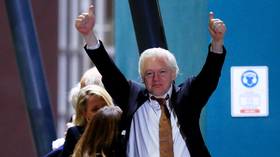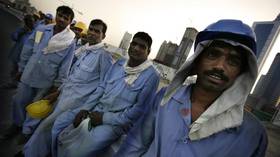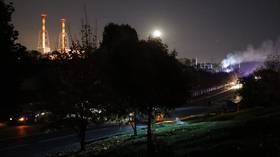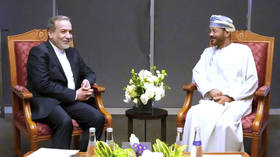Australian politician blames Assange for years of captivity

The opposition leader in the Australian Senate, Simon Birmingham, has claimed Julian Assange’s years of confinement in the UK were the result of his own actions, as he evaded lawful extradition requests.
On Wednesday, the Wikileaks founder walked free from a courtroom in a remote US Pacific territory, after pleading guilty to a single count of conspiracy to obtain and disseminate national defense information – in exchange for a sentence that amounted to the time he spent in UK custody fighting a US extradition request. The Australian government, including Prime Minister Anthony Albanese, had sought his release.
In an interview with Sky News Australia on Thursday, Simon Birmingham predicted that “the prime minister’s embrace of Mr. Assange might not age very well, once Mr Assange starts tweeting again.”
He insisted that Assange should not be considered an innocent Australian citizen, persecuted by an authoritarian government.
“Mr. Assange evaded lawful extradition requests, first by hiding in the Ecuadorian embassy, then by using his legal rights in the United Kingdom to challenge them over many years,” Birmingham said. “The reason it has taken so long to resolve this is his decision to challenge it in that way.”
Ecuador granted Assange political asylum in 2012 due concerns that a Swedish extradition request for the Wikileaks founder was a ruse to have him sent to the US. American espionage charges, which were made public years later, could have landed the Australian up to 175 years of prison time.
The Australian Senate opposition leader claimed that the publishing of classified materials by WikiLeaks endangered the sources of US allies, including Australia, which is a member of the Five Eye intelligence-sharing group.
A similar argument was made by US State Department spokesman Matthew Miller, who claimed during a daily briefing on Wednesday that Assange “put the lives of our partners, our allies and our diplomats at risk, especially those who work in dangerous places, like Afghanistan and Iraq.”
Some journalists, including Associated Press reporter Matt Lee, challenged him – pointing out that the court verdict specifically said that there were no victims in the case and that the US government never identified to the public any individual put in harm’s way by WikiLeaks.
“Just because people were able to mitigate the harm done by your actions, that doesn’t absolve you,” Miller responded, comparing publication of leaked documents to reckless driving.














